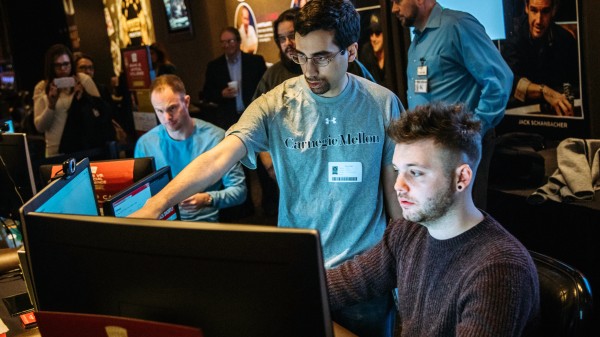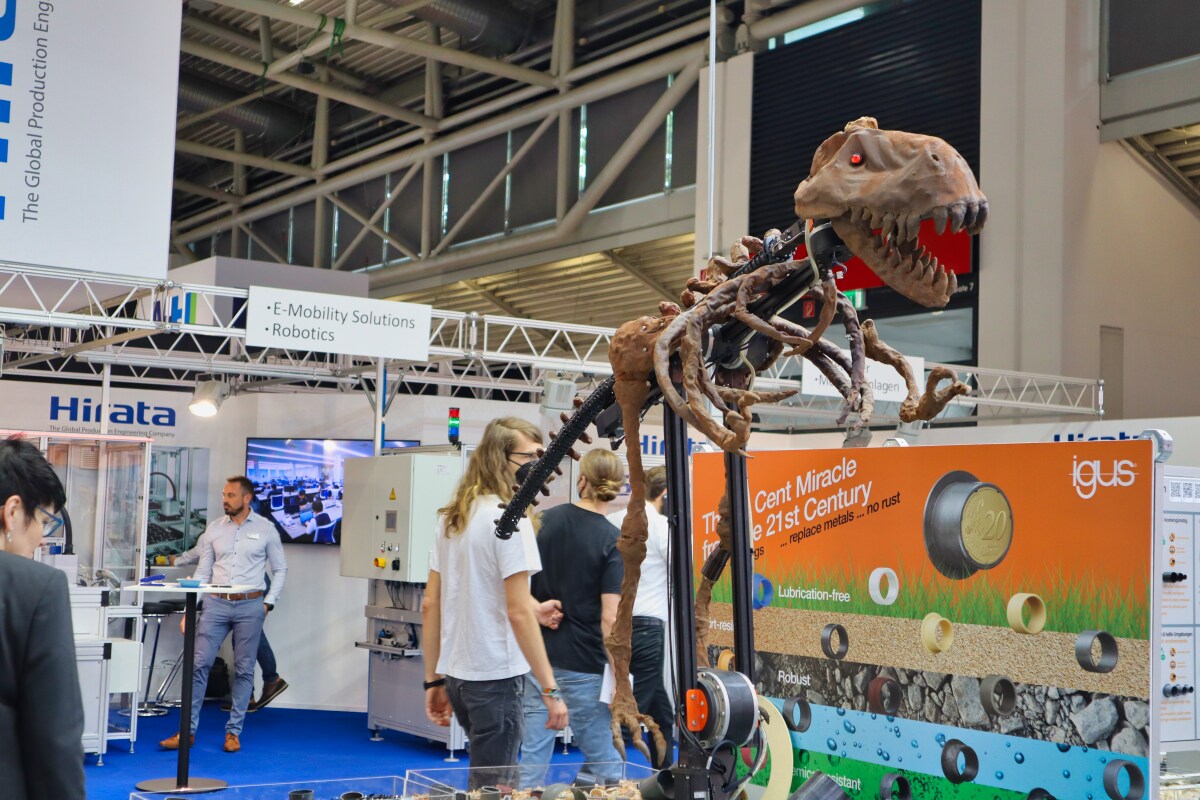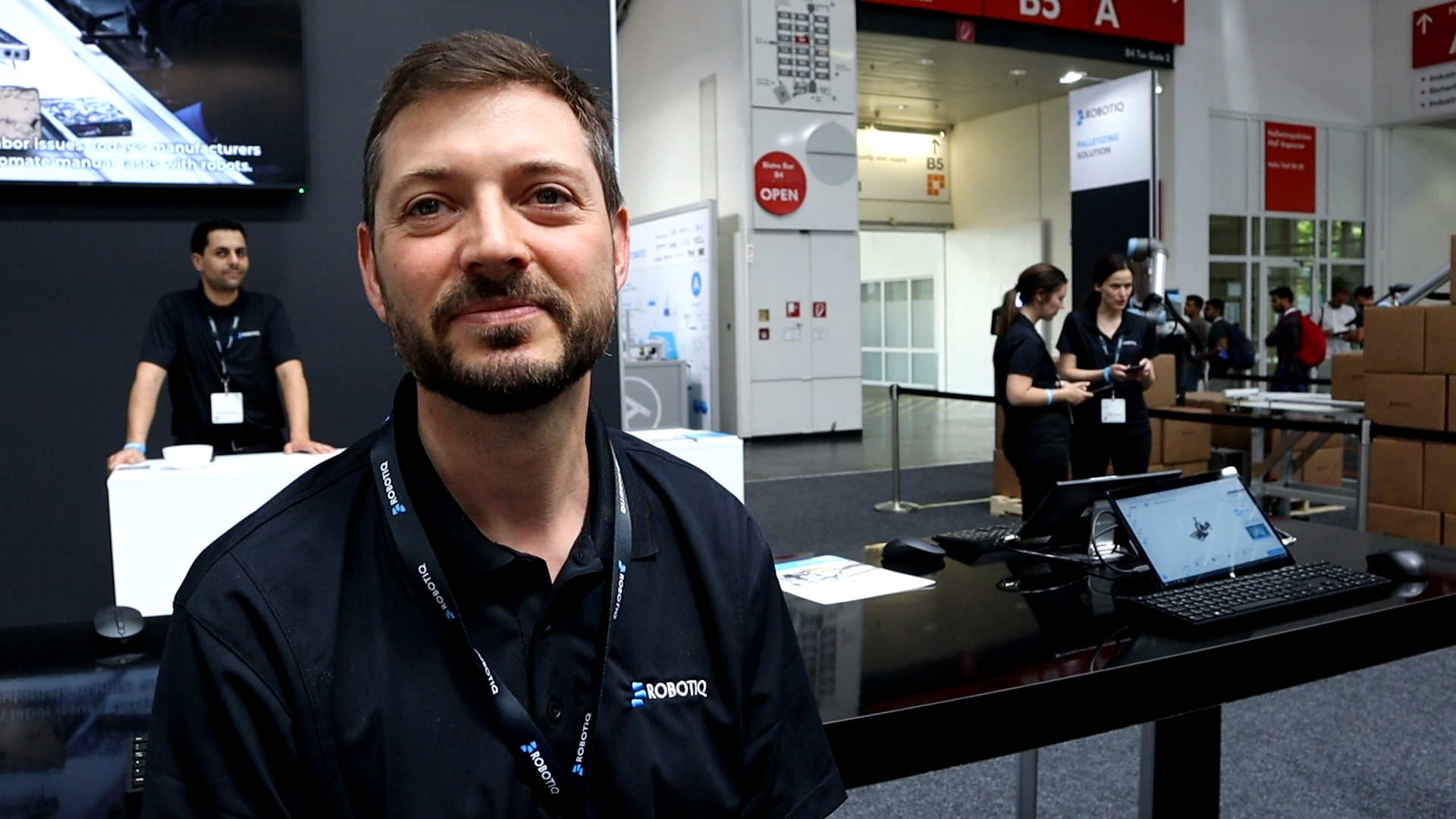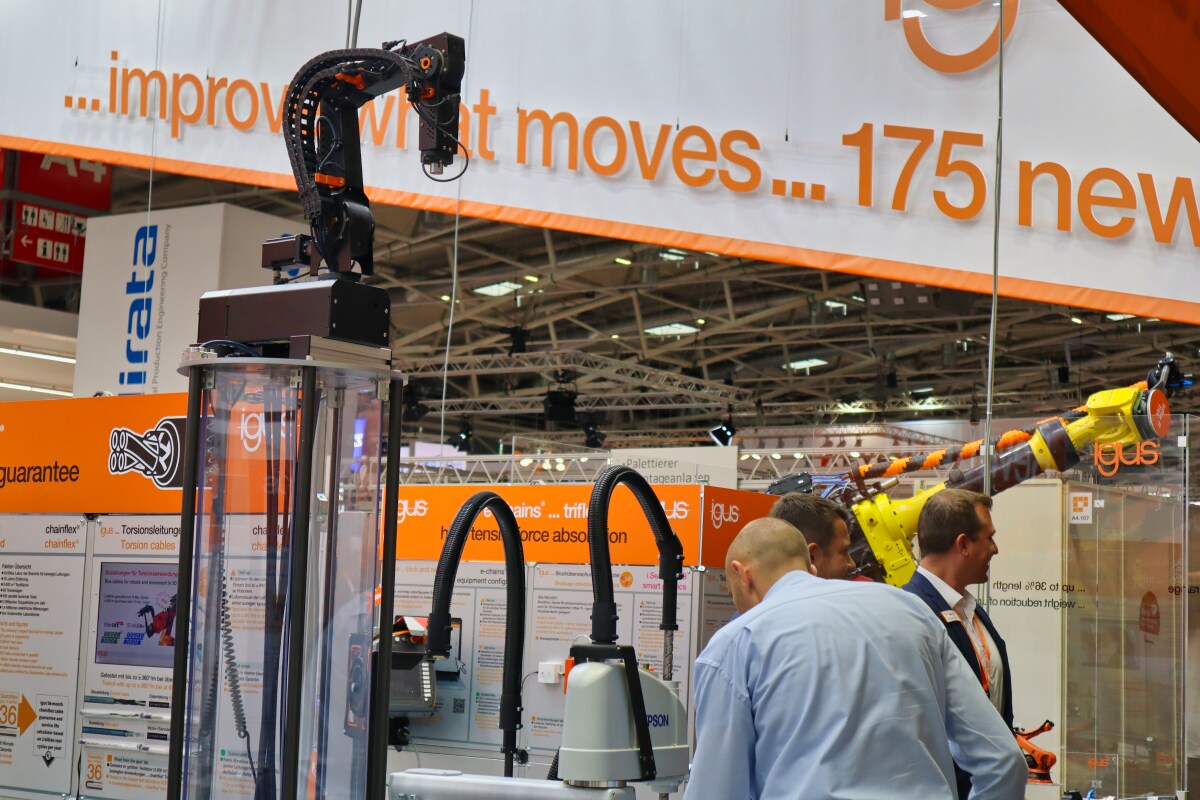What's New in Robotics This Week - Feb 03

Boston Dynamics' new robot; record robot sales; plus, Federal Robotics Agency; Poker pros meet AI; cobots for retail; bag-pipe playing robot, and much more! Find out what's happening in our robotics universe this week. We hope that the news we have selected will interest and amuse you. Enjoy!
Leaked Video Reveals New Boston Dynamics Robot That Can Perform Amazing Stunts on Two Wheels (Gizmodo)
Boston Dynamics' founder Marc Raibert revealed video of an amazing quasi-humanoid, wheeled robot at a conference this week (starts at 3m44s).
The firm is famous for its BigDog and Atlas robots, but this bot shows even greater mobility and agility than its illustrious predecessors.
Seemingly designed for carrying objects around, Handle’s ability to self-balance by adjusting its weight also helps it handle heavier things in hand without falling over. In comparison, ATLAS’ torso only has a limited amount of flexibility, limiting what that humanoid can lift while still staying on its feet.
In his presentation, Raibert also mentions that by using wheels, Handle could be built and made available at a much cheaper price point than Boston Dynamics’ other two-legged creations. There is still speculation as to why Alphabet decided to put Boston Dynamics up for sale two years after acquiring it for its now-defunct Replicant division.
2016 Breaks Records for North American Robot Orders and Shipments (Robotic Industries Association)
This week brought a slew of positive results and predictions for the robotics industry.
First up, the Robotic Industries Association announced that the North American robotics market broke all-time records for orders and shipments in 2016.
During the year, 34,606 robots valued at approximately $1.9 billion were ordered in North America, representing growth of 10 percent in units over 2015. The automotive industry experienced another strong year with orders growing 17 percent. Units shipped to North American customers also grew by 10 percent, with 30,875 robots valued at $1.8 billion shipped in 2016. Shipments into the automotive market grew 25 percent relative to 2015.
Elsewhere, Engineering.Com reported on a study from market analysts Frost & Sullivan, which predicts that the global industrial robotics market will hit USD$70.26 billion by 2023, driven in part by cobots.
According to yet another report, the global cobot market alone (valued at US$10.3 bn in 2015) is expected to be worth US$95.0 billion by the end of 2024.
The United States Needs a Federal Robotics Agency Before It's Too Late (Inverse)
US experts are calling for the formation of a Federal Robotics Agency --an overarching agency responsible for offering guidance and expertise in the complex field of robotics and artificial intelligence, Inverse reported this week.
John Frank Weaver, a lawyer in Boston, Massachusetts who specializes in A.I. law, thinks the time for centralized oversight is now.
“There should be some federal commission, or entity, that has some role in organizing a large picture regulation of AI and autonomous technology,” Weaver tells Inverse.
“The idea that there’s one body where congress and the executive branch are able to pool their resources and come up with a coherent federal policy for the country, both in terms of domestic policy and how we approach international treaties, I think is important, because of the potential dangers in a lot of areas.”
See also: "Elon Musk really isn't as aligned with Trump on manufacturing as it seems," from Business Insider.
Deciding What NOT to Do Is as Important as Deciding What TO Do (The Robot Report)
This fascinating profile of Universal Robots by Frank Tobe is well worth a read as it provides a deep dive into the history of this leading cobot company all the way from conception of their cobots to today.
Esben Østergaard, Kasper Støy and Kristian Kassow, two young PhD's and a civil engineer, all from the University of Southern Denmark (USD) located in Odense, came together in 2005 to make flexible robots. Kassow had a vision of running a robot manufacturing business, Støy and Østergaard, were to focus on the software, engineering and other practicalities. Østergaard also had a vision: he wanted to make robot technology accessible to all by developing small, user-friendly, reasonably priced, flexible industrial robots that were safe to work with and easy to program.
Collaborative Robots Make Light Work of Order Picking, Grocery Shopping (DC Velocity)
Nice short read about cobots in retail environments, including the Dash (see video below, which shows the bot in action).
in December, Wall, N.J.-based Five Elements Robotics introduced a robotic shopping cart called Dash. Grocery shoppers can walk up to a Dash unit and transfer a shopping list from their phone. The robot then maps out the best route for retrieving the items and leads the shopper through the store. When the order is finished, Dash can use an on-board scanner and payment system to complete the purchase, avoiding checkout lines. It will even follow the customer out to his or her car to unload. Empty carts head back to the store to plug in, recharge, and rest their feet—er, wheels—until the next shopper calls.
Meet Ardu McDuino: The Bagpipe-Playing Robot (Robotics Trends)
Playing the bagpipes is a feature , not a bug, of this new robot from Instructables member XenonJohn.
(Just kidding. However the bagpipes can be an acquired taste, so take care before you press play on the video below.)
The 3D-printed hands have individual solenoids that allow each finger to cover and uncover the holes on a real bagpipe to produce the notes you hear in the video above. The bagpipe-playing robot has been programmed to play entire songs.
The main limitation of the robot is that it requires a human to blow into the instrument. That’s certainly not ideal if you want to listen to the sweet sounds of Scotland 24/7/365, but XenonJohn says he’s working on a new version that includes an air pump to automatically blow air into the bagpipes.
An AI Poker Bot Has Whipped the Pros (MIT Technology Review)
First chess players felt the heat, then Go players tasted defeat at the hands of artificial intelligence.
Now it's the turn of leading professional poker players to feel the power of a new AI (dubbed 'Libratus') that has beaten some top players from around the world.

Developed by experts from Carnegie Mellon University, Libratus has played thousands of games of heads-up, no-limit Texas hold’em against four professional players at Rivers Casino in Pittsburgh, beating them all.
The secret? Machine learning and using game theory to fill in the information deficits that emerge while playing no-liit Texas hold 'em.
Libratus made off with $1.8 million in chips, while all four of the pros ended up with a deficit. Artificial intelligence has never beaten top players at a game so lacking in information as no-limit Texas hold’em. Like DeepMind’s Go victory before it, then, the win is a seminal moment for the machine learning community.
But what was it like for the humans to play against? “It’s slightly demoralizing," Jason Les, one of the professionals, told the Guardian. "If you play a human and lose, you can stop, take a break. Here we have to show up to take a beating every day for 11 hours a day. It’s a real different emotional experience when you’re not used to losing that often.”
Congratulations to the CMU team.
But inquiring minds want to know whether their system can drink whiskey, smoke cigars, and intimidate other players so that they fold more easily? Those would be some nice finishing touches.
I'll be back next week with more news from the worlds of robotics and AI.
Until then, I hope you enjoy the following videos and links!
When Will Robotics Cause a Business Disruption? (Robotics Business Review)
This microscopic robot is revolutionizing eye surgery (The Week)
Robots are taking over oil rigs as roughnecks become expendable (Houma Today)
Reinventing the Robot: A Job Only AI Can Do? (Asian Robotics Review)
Hand delivered: will Ocado's robot soon be picking your shopping? (The Guardian)
Japan’s robot chefs aim to show how far automation can go (Financial Times)
Revitalizing American manufacturing with robots (Today's Medical Developments)
Aquatic Robot Braves Volcanoes and Typhoons to Detect Tsunamis (Scientific American)
Ocado trials fruit-picking robot (BBC News)
Bat Bot: It's the 'holy grail' of flying robots (c|net)






Leave a comment